There comes a point in everyone’s life when you really need to take a step back and evaluate your friendships. Ask yourself a few questions that will help you understand whether your friends are good or toxic, and if you think they’re the latter, then maybe it’s time to let go of toxic friends.
Most Empaths have at least one person in their life who causes them to experience negative emotions, just by being in their presence.
These people, who may be friends or family members, seem to spew acid when they talk: they complain about everything, appreciate nothing and only look out for their own interests.
It is quite normal for an Empath to experience heightened emotions and feel another’s buried pain, and we want to help others out with their problems when we can, but we are not supposed to be someone’s emotional punch bag or toxic dumping ground.
Toxic people can drain your energy within a matter of minutes of being in their presence, and even self-protection techniques may not work to prevent their dark vibes from seeping in.
Related: The 7 Types Of Toxic Friends You Should Stay Away From
Typical Sensations Experienced When With Toxic People
1. Anger or feelings of bitterness
This can last for the duration of being in their presence and up to 10 days after. Depending on their negative traits will depend on what you feel.
2. Fatigue
Struggling to keep your eyes open, especially if they are venting.
3. Being out of sorts
A range of strange feelings washes over you, from being spaced out, to nausea.
4. Negative talk
Finding yourself talking negatively of others, even though it is not a typical trait of yours.
5. Apathy
Losing all previous zest and optimism.
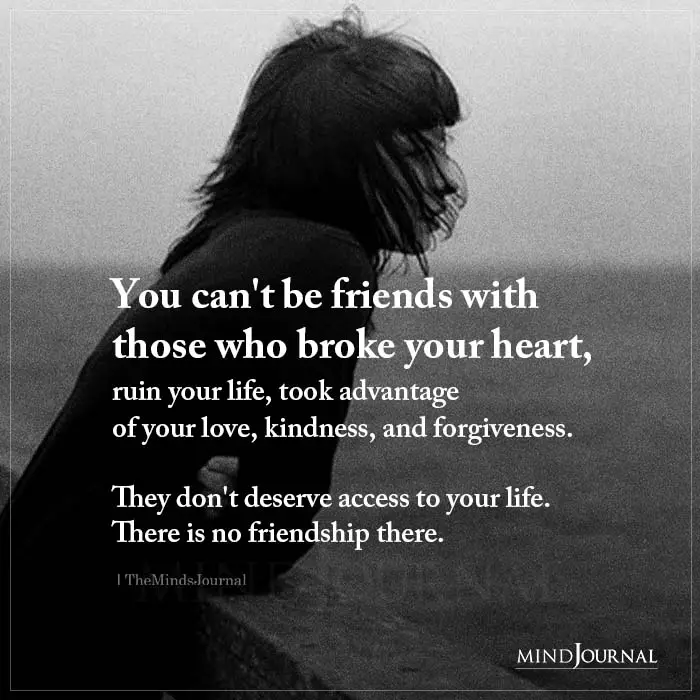
If you have a toxic person in your life, you may have already tried helping them, by sharing what has helped you in dealing with the rigors of life. Sadly, they did not want to listen and have no intentions of making any changes to themselves, preferring to continue to offload their negative rants on you.
The Empath generally avoids hurting or causing unnecessary pain to others, and it is, for this reason, many keep in their lives those who cause them unhappiness. Yet, one must always put the emotional health of self first.
If food or substance made you violently ill or caused you to feel depressed, you would likely avoid it; the same should be applied to those who cause emotional turmoil.
Related: 5 Helpful Tips To Let Go Of Toxic Family And Save Yourself
We have a responsibility to keep our body and mind healthy. If another continually causes stress that we cannot cope with (all stress eventually leads to illness) the only option is to remove them from our life.
I am not talking about having the ego dented by another’s random disrespect. Everyone has people who offend, hurt, or make them angry, by their lack of understanding. And we in turn will no doubt, unknowingly, do the same to others. This issue is about those toxic friends, or family members, who repetitively (and often intentionally) bring us down.
The point comes in all toxic friendships when you have to decide if it is causing more harm than good.
Here are some questions to ask that may help you evaluate your friend/relationship and hopefully help you see if it is a healthy one.
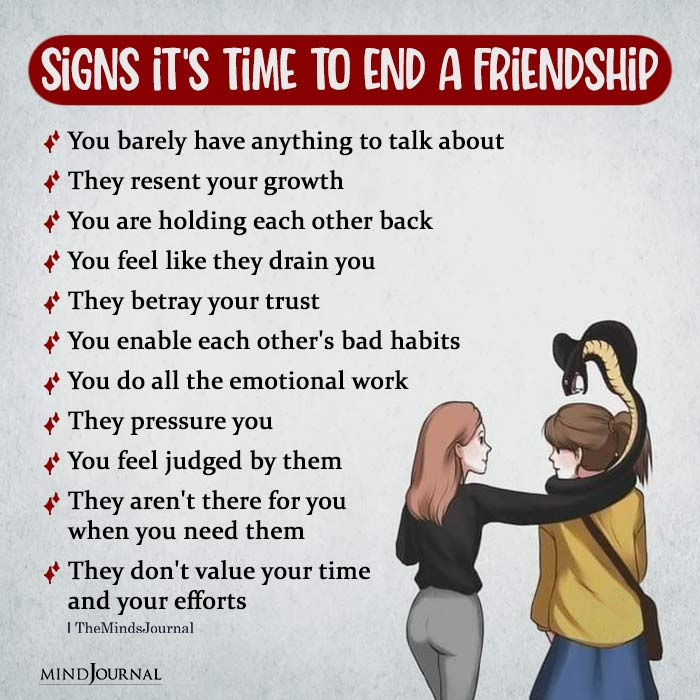
15 Questions To Ask To Know If It’s Time to Let Go of Toxic Friends or Family
– Am I taking anything from this friend/relationship?
– Does spending time with him/her make me happy?
– Do I dread being in his/her presence?
– When was the last time I enjoyed being in his/her company?
– Do we have any of the same interests?
– Is it a one-sided friendship with me fitting in with his/her needs?
– Does this relationship affect my emotional health?
– Do I feel ill, emotionally drained, or have intense negative emotions after being with him/her?
– Am I being used as an emotional dumping ground?
– Does he/she have a lot of negative thoughts or anger toward me?
– Am I learning anything from spending time with him/her?
– Is being in this relationship making me grow spiritually, emotionally, or other?
– Is this relationship beneficial to either of us?
– Has he/she become dependent upon me?
– What are my real reasons for staying in this relationship?
There are many reasons we encounter toxic people. A common reason being the Mirror of the Empath. Certain encounters act as a mirror and show us weaknesses or issues we need to resolve within ourselves.
Any undesirable behavior that repeats, in any type of relationship, is something that needs to be investigated. Repetition highlights flaws or issues that need to be worked on and learned from.
Related: How To Let Go Of Toxic Friends And Break Free
We all learn from the bad situations presented in life. Yet, if the same emotional scenarios keep playing out, no one is gaining, learning, or growing from the situation and it is time to cut the cord.
Once you have learned from an experience you don’t need to re-learn it over and over. You may learn from bad experiences, but you don’t need to keep experiencing other people’s negativity to grow.
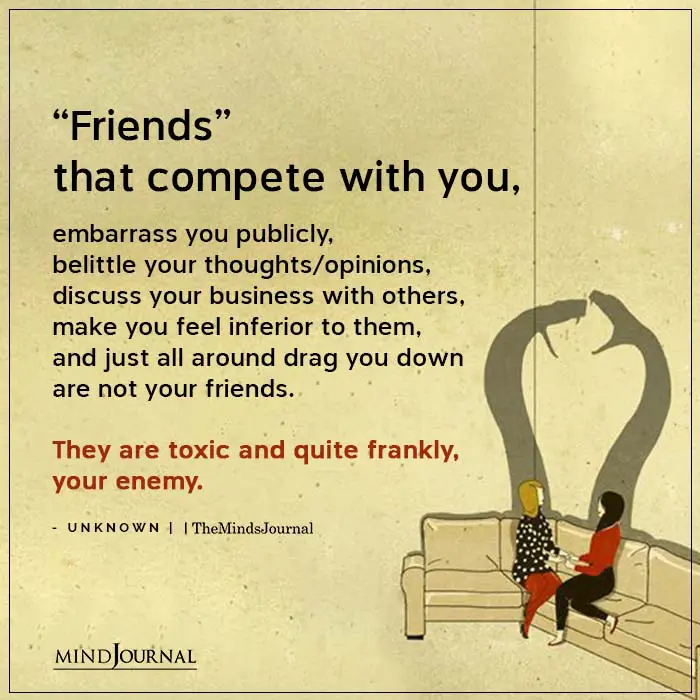
This is not about being spiteful or uncaring. You can be grateful for all they have shown you in life and send them love. But when it feels time to let them go, it is.
Please share this post with anyone who you may think will find it valuable and helpful.
Written by: Diane Kathrine Originally appeared on: The Knowing 1 Republished with permission
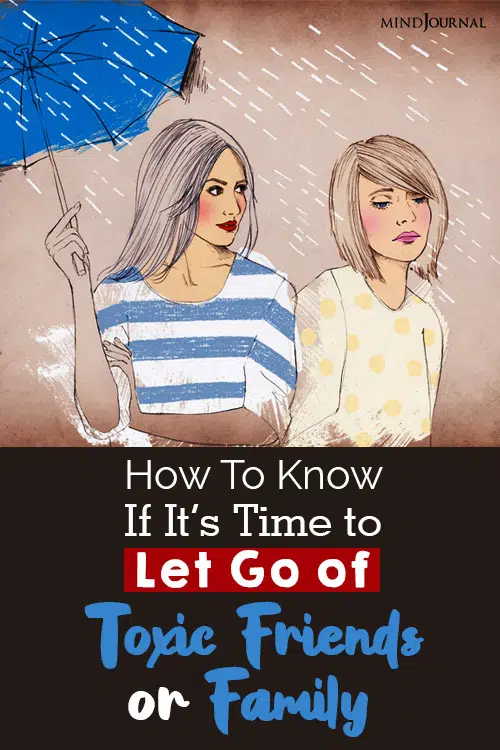
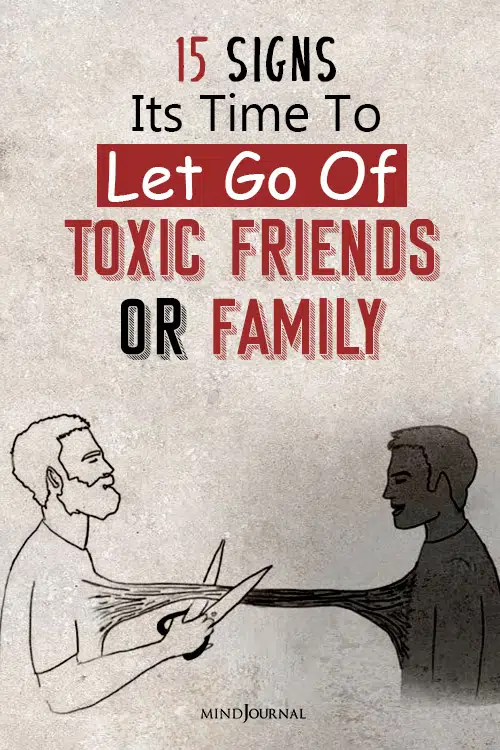
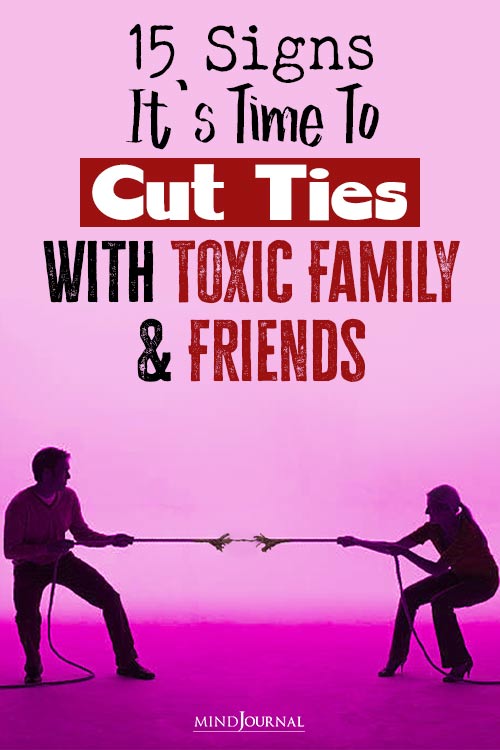
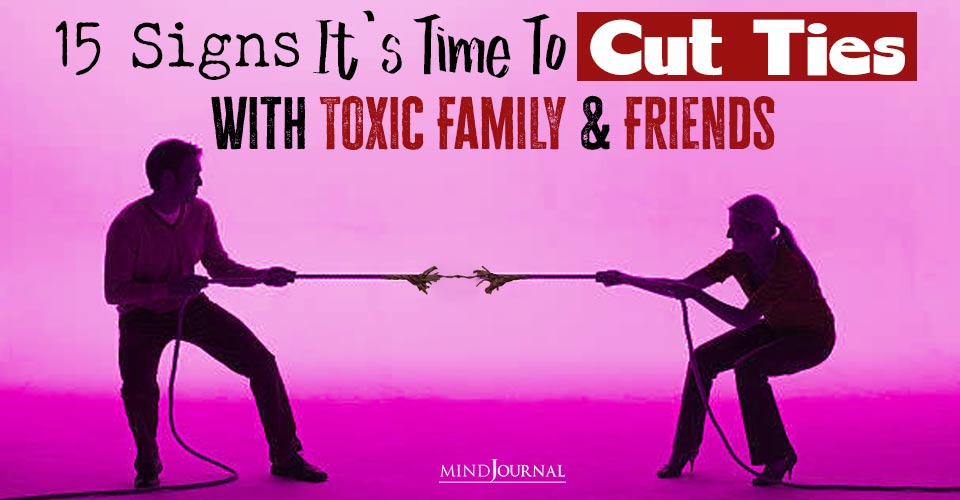






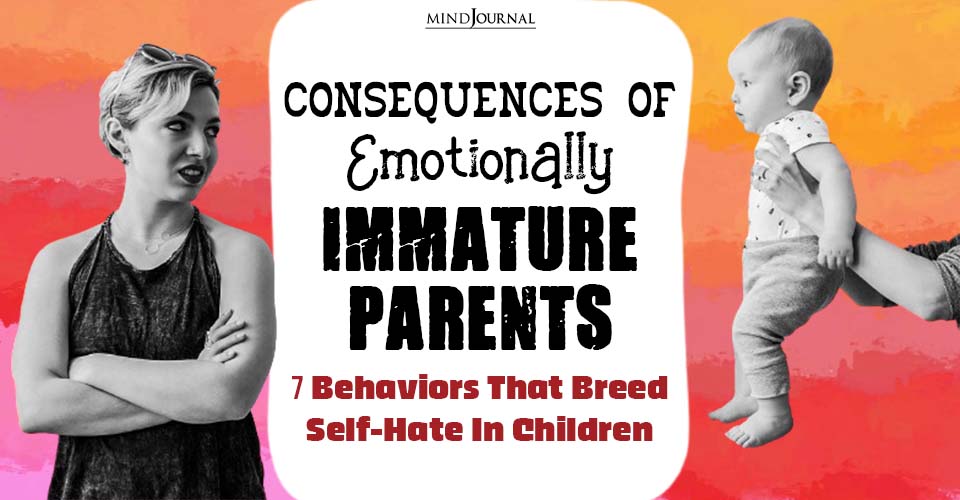
Leave a Reply
You must be logged in to post a comment.